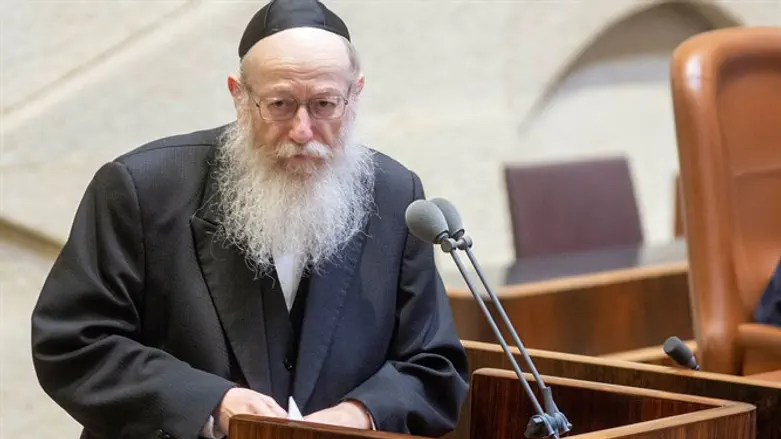
Prime Minister Binyamin Netanyahu’s coalition government announced Sunday that it will request an extension from the Supreme Court on an amendment to the nation’s draft law, enabling the narrow government to pass replacement legislation.
With just one week until the previous extension given by the Supreme Court ends, coalition leaders in Netanyahu’s narrow 61-member government announced plans to request a second extension.
Earlier this year, the Supreme Court granted a three-month extension, requiring the government to pass new legislation mandating the terms of army deferrals for yeshiva students by December 2nd, or face a termination of the deferral program with the lapsing of the existing law.
One of the most contentious political issues in Israel, the army’s policy of deferring full-time yeshiva students from military service has been the center of repeated Supreme Court rulings, striking down multiple laws enacted by the Knesset over the past two decades.
While most Israeli Jews are required to serve in the IDF or in one of the many civilian national service programs, Israel’s draft law provides special considerations for the Arab population, Orthodox women, and yeshiva students.
While most of Israel’s Muslim and Christian Arab communities are exempt entirely from the draft, along with Orthodox and Druze women, full-time yeshiva students are granted annual draft deferments.
First introduced in 1948 with the establishment of the State of Israel, the draft program originally covered a limited number of scholars, but during the 1950s and 1960s expanded, and by the late 1970s the deferrals were offered to virtually all full-time students, renewable every year with no limitation.
Critics of the program charge the open-ended nature of the deferrals enables haredi yeshiva students to effectively avoid the draft altogether, remaining in yeshivas until they are no longer of draft age.
In a bid to encourage yeshiva students to consider enlistment, the Knesset passed in 2002 the Tal Law, which maintained the deferment program while offering shortened service and a 12-month ‘decision year’ deferral to enlistees.
The Supreme Court struck down the law, however, in 2012, ruling it constituted de facto discrimination.
In 2014, the Knesset replaced the Tal Law with a new amendment to the draft law which limited the deferral program, and placed sanctions on haredi yeshiva students who refused to enlist.
A year later, however, the new Israeli government, at the behest of its haredi coalition partners, repealed many of the limitations to the deferral program enacted in the 2014 amendment.
The Supreme Court intervened again, however, striking down the 2015 draft law in 2017, granting the government one year to pass a replacement law.
After coalition infighting between haredi factions and the Yisrael Beytenu party derailed attempts to pass the bill earlier this year, the government requested an extra six months – though it only received a three-month extension from the court.
With Yisrael Beytenu now out of the coalition, the government aims to pass a new amendment to the draft law.
But with just one week left until the December 2nd deadline, coalition leaders fear a new bill which is acceptable to the United Torah Judaism faction cannot be drawn up and passed in the allotted time.
Former Finance Minister Yair Lapid (Yesh Atid), who backed the 2014 amendment limiting the draft deferrals, slammed Prime Minister Netanyahu over Sunday’s announcement.
“The only reason why Netanyahu is going to the Supreme Court yet again is to maintain his position. They could pass a draft law this week. All he would have to do is promise that there won’t be any deal for money. But Netanyahu surrendered to the haredim again and again. Yesh Atid will continue to fight for greater equality in sharing the burden, and won’t submit to haredi demands.”